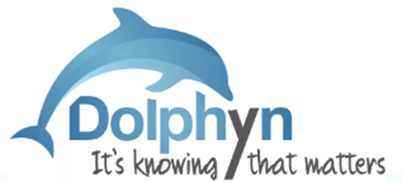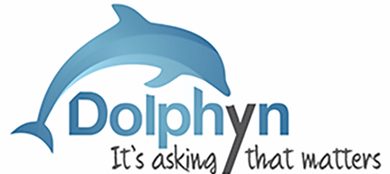Originally posted on October 28, 2016 @ 4:24 AM
A Small Change and ‘Y’ it Matters?
First published here: http://dolphyn.com.au/small-change-y-matters/
 Perhaps one of my most important discoveries during the ‘learning adventure’ of the past few years, is of how much I don’t know.
Perhaps one of my most important discoveries during the ‘learning adventure’ of the past few years, is of how much I don’t know.
This is despite participating in formal studies, working full-time in the field I studied, sharing in relationships with people, being a Father of a (now) teenager and writing a book, all of which helped me to learn a lot; yet still there is much I do not know. This creates a feeling of excitement as I think about the further learning that (I hope) lies ahead of me.
This is because I find learning both liberating and energising. Especially as I seek to better understand people and how we make decisions and judgments about risk.
However, there are also challenges that arise when we learn and subsequently come to a feeling of ‘knowing’; it can ‘do something to us‘. I used to suggest that; ‘it’s knowing Y that matters‘, however I now ask; is it, and also what is it that ‘knowing’ may do to us?
These are the questions that I explore in this piece.
Throughout my life, but in particular over the past few years, I’ve come to realise that one of the key dilemmas that comes about when we have a feeling of ‘knowing’ something, is that while it helps us in learning, paradoxically it may also hinder it. That is, could a feeling of ‘knowing’ also bring with it the idea that we no longer need to explore, ponder, reflect and seek to understand? Do we then stop asking questions and seeking to learn?
Is it our struggle with this paradox that means that we can so easily be seduced into the methods of ‘knowing’ through reductionism?
After all, it does seem much easier to understand ‘pieces’ or ‘bits’ rather than the ‘whole’, which is more convoluted, challenging, often contradictory and complex. This is why it is important to understand the ‘methodology‘ that drives our desire to ‘know’. So why is this critical for learning and in dealing with risk?
If our worldview is focused simply on ‘knowing’, rather than continually questioning and thinking critically, then we may well struggle to deal with risk. This is especially the case if we fall for the trap that we believe that we know all that there is to know, or more commonly; all we need to know.
If our goal is to better understand people and to deal with risk, isn’t it crucial that we develop more critical thinking, continue to be skeptical of those things that we seem to know, and be free to ask questions?
Risk is about uncertainty, isn’t it? It is not a fixed, binary or always objective topic. It is understood differently by different people. It relies on hope, chance and faith, none of which can always be viewed through an objective or logical lens. We could easily be tempted into thinking that our ‘knowing’ is a fixed idea or state where once we know something, that’s it, we know it, no further action required. However, if we want to ‘know’ more about risk (uncertainty), don’t we need to be continually evaluating, reflecting, learning and questioning.
I wonder if it would be better for me to suggest that ‘it’s asking Y that matters‘?
Having said this, I do understand and accept that we cannot always resist the very seductive and appealing nature of ‘knowing’ through the lens of reductionism. Humans (me included), often have strong desires to want to break things down in order to understand (‘know’). But is this going to help us develop a better understanding of risk?
The irony is not lost on me that I am writing a piece about ‘knowing’ that in many ways suggests that I ‘know’ about ‘knowing’; I find it terribly challenging to escape. Perhaps it is by trying to describe it through words that is the real challenge? Maybe that is a topic for a whole separate piece.
Maybe it would be best to finish by reflecting on the words of Carl Jung who notes in his book The Undiscovered Self (1990):
“If I want to understand an individual human being, I must lay aside all scientific knowledge of the average man and discard all theories in order to adopt a completely new and unprejudiced attitude. I can only approach the tasks of understanding (sic) with a free and open mind, whereas knowledge (sic) of a man, or insight into human character, presupposes all sorts of knowledge about mankind in general.”
Jung (1990, p. 6)
Maybe Jung, through this supposition provides us with further fodder for reflection on the topic of ‘knowing’ and learning?
A Change Was Needed…
 Reflecting on this point myself over the past few days while in conversation with a few close friends has had an impact on how I think on the topic. This caused me to be less concerned with ‘knowing’ and instead more interested with questions. It sparked a small, but what I feel is significant, change at Dolphyn.
Reflecting on this point myself over the past few days while in conversation with a few close friends has had an impact on how I think on the topic. This caused me to be less concerned with ‘knowing’ and instead more interested with questions. It sparked a small, but what I feel is significant, change at Dolphyn.
Primed with the above thoughts, can you pick it?
Share Your Thoughts for a Chance to Win…
If you can spot the change and you would like to offer a comment or thought on it, and/or on the topic of knowing and learning, (either by commenting below, or to me directly at robert@dolphyn.com.au), I’m offering three copies of my book Social Sensemaking to the three thoughts offered that I enjoy the most.
To spark some thoughts, here is some feedback from one of my closest and critical friends:
“One thing I don’t like about these statements is that it emphasises only one part of the learning process (or praxis/critical consciousness as Friere termed it). We need to identify the issue and try to understand why its important; this is where asking and critical thinking is important. But without action and reflection (leading back to identification) we haven’t created change and the learning process is incomplete.
I know we can’t make logos perfect (they are just a form of model after all) and this one is way better than most of the $4it out there and leads to some great conversations, but that is where my thoughts go when I see it I wonder what else we are missing and over or de-emphasising when we are creating these logos, phrases and models? Is it even important to know?”
Do you have a thought on ‘knowing’ that you’d like to share?
PS: One final note that I’d like to make about the minor change that I have made. I acknowledge that slogans in themselves are the result of being seduced by reductionism. It seems breaking down all of my thoughts and ideas on the work I do down to one phrase is a classic example of how easily I can be seduced into it, even after writing an article where I warn of it! Yet I still did it… I guess I will have to continue to ask myself Y…
Author:
Robert Sams
Email: robert@dolphyn.com.au
Web: www.dolphyn.com.au



Do you have any thoughts? Please share them below